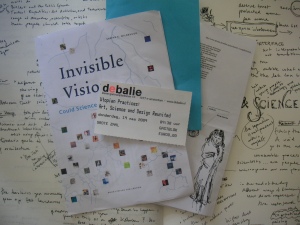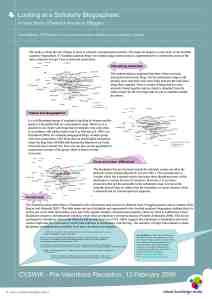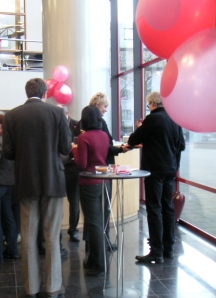What is utopian practices? I was at a conference yesterday were this question was asked, and the practices that are meant as being utopian is the practices that develop when art, design and science join together.
 One important point in the end of the day was that we have to understand the process. We should study the black-box of the co-practiced work. To understand the process will be a good starting point for more collaboration and how it can be used. It was also said that to be able to use the collaboration for something in the end it’s incredible important with evaluation. A question was asked about how we evaluate the boundary objects that is created in these utopian practices?
One important point in the end of the day was that we have to understand the process. We should study the black-box of the co-practiced work. To understand the process will be a good starting point for more collaboration and how it can be used. It was also said that to be able to use the collaboration for something in the end it’s incredible important with evaluation. A question was asked about how we evaluate the boundary objects that is created in these utopian practices?
The evalutaion was also what we discussed some of us afterwards, even though it might seem boring to bring that issue up after talking about the idea of sparkling collaborations and how visionary work can happen when joining these three together. If we want to bring the utopian practices one step further our idea was that the evaluation and how you can report what has been created in this co-practice must also be brought into focus.
The programme can be found at de Balies web and they will also in a couple of days put a video out with the presentations from the day.

